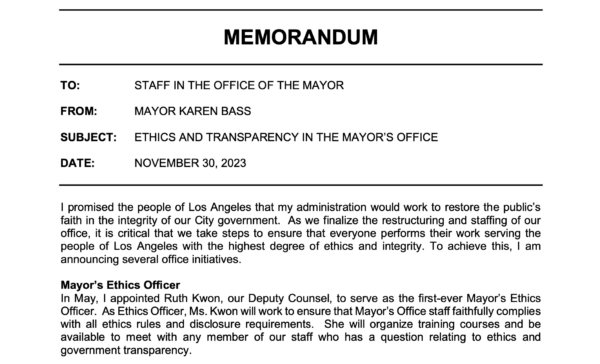By Eli Hager
This story was originally published by ProPublica, a Pulitzer Prize-winning investigative newsroom. Sign up for The Big Story newsletter to receive stories like this one in your inbox.
Series: Welfare States:How the Southwest Transformed Welfare
Welfare reform allowed states to choose how they provide assistance to the poor — or hardly provide it at all. In the rapidly changing Southwest, that has sometimes led to bizarre or impossible requirements for getting help.
The Biden administration this fall is quietly moving to overhaul welfare, aiming to end multiple abuses of the nation’s cash assistance program for the poor that a 2021 ProPublica investigation found states have been engaging in for years.
Through a package of proposed reforms to the Temporary Assistance for Needy Families program, or TANF, the administration plans to shore up the U.S. social safety net. The regulations are intended to ensure that more federal and state welfare dollars make it to low-income families, rather than being spent on other things or not spent at all.
The proposal, drawn up by the federal Administration for Children and Families, is open for public comment until Dec. 1. Once comments are reviewed, officials plan to issue final regulations that could take effect in the months after that, heading into the 2024 election.
The first change would prohibit states from counting charitable giving by private organizations, such as churches and food banks, as “state” spending on welfare, a practice that has allowed legislatures to budget less for programs for low-income families while still claiming to meet federal minimums. ProPublica documented how Utah avoided more than $75 million in spending on public assistance over the past decade by taking credit for aid to the hungry and homeless provided by the Church of Jesus Christ of Latter-day Saints. (Many of the vulnerable Utahns we interviewed felt that in order to access desperately needed aid, they had to participate in Mormon religious rites they didn’t believe in.)
By banning this practice, the Biden administration’s plan would force Utah to stop taking credit for what the church does and instead spend more state money assisting people in poverty.
The new rules would also restrict states from spending TANF funds on child protective services investigations, foster care or any other programs that don’t meet the fundamental purposes of welfare: strengthening poor families and keeping them together. ProPublica found that in Arizona and elsewhere, money meant to help parents struggling to raise their children is instead used to investigate them for alleged child maltreatment — which often stems from the very financial circumstances that they needed help with in the first place.
Under the Biden plan, Arizona would likely have to find other ways of funding its aggressive child protective services investigations of poor parents and use welfare dollars to help families stay together rather than removing their kids into foster care.
The reforms would also redefine the term “needy” to refer only to families with incomes at or below 200% of the federal poverty line. Currently, some states spend TANF money on programs like college scholarships — or volleyball stadiums — that benefit more affluent people.
Ashley Burnside, a senior policy analyst and expert on TANF at the Center for Law and Social Policy, an advocacy organization for low-income Americans, said that political support for such improvements to welfare has grown in recent years, especially amid the pandemic, when so many more families started to need help. Media coverage by both ProPublica and Mississippi Today helped make this happen, she said.
As ProPublica has reported, many of welfare’s failures originated with a 1996 law signed by then-President Bill Clinton. That legislation, which Biden supported at the time as a senator, gave states broad flexibility over how to spend their annual grant of federal dollars intended for the poor. In the decades since, legislatures, especially in the South and Southwest, have found ever more creative outlets for the funding, including diverting it to anti-abortion clinics or not spending it at all.
The Biden administration’s proposal would mandate that states provide concrete evidence, including social science research or real-world examples, showing that they are using their TANF spending in ways that truly help families in need.
One of the best ways to do that, according to the administration: direct cash assistance. “We remind states that there is a large body of research that shows that cash assistance is a critically important tool for reducing family and child poverty,” said the announcement of the proposed regulations. “Studies have found that when families receive TANF and are more financially secure, they are less likely to be involved in the child welfare system.”
The announcement also said that states will have time to create new TANF plans; the implementation period will be flexible. But, ultimately, if they fail to comply, they will be assessed a significant penalty for misuse of funds.
“This will not completely solve the problem of the leakage of TANF funds,” said Burnside. “But it will create guardrails so that more money actually gets to poor families.”
ProPublica is a Pulitzer Prize-winning investigative newsroom. Sign up for The Big Story newsletter to receive stories like this one in your inbox. Republished with Creative Commons License (CC BY-NC-ND 3.0).







